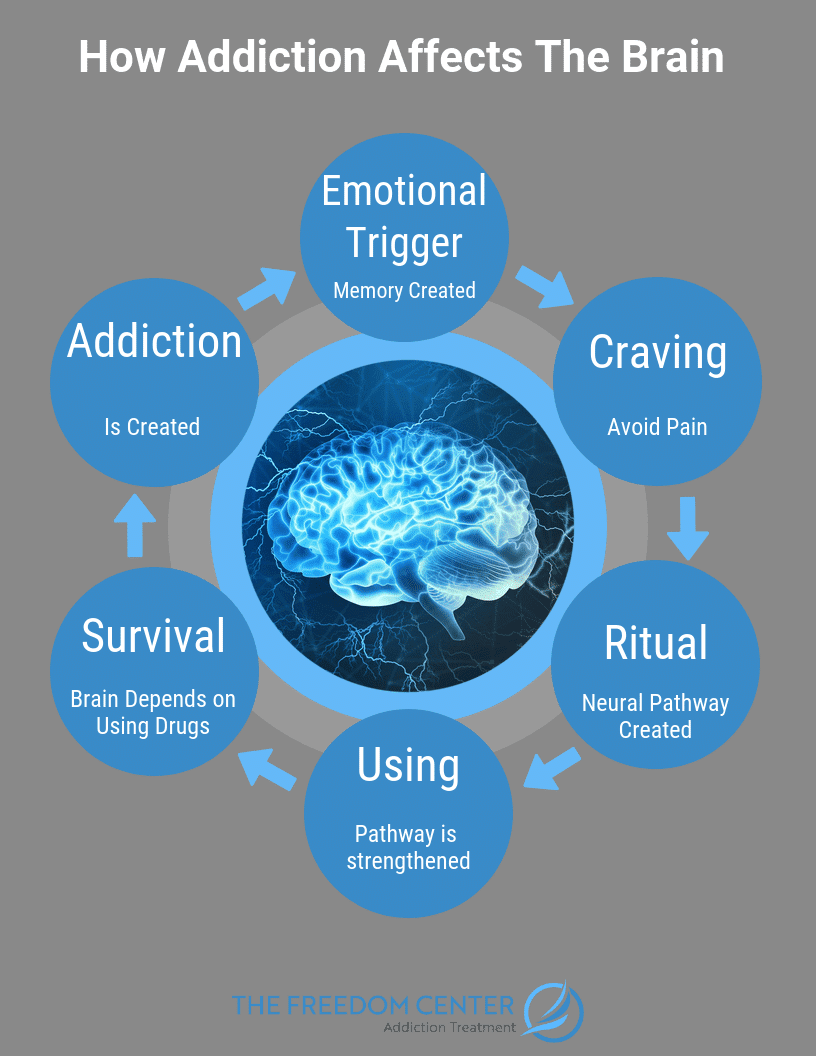An addiction is a chronic dysfunction of the brain system that involves reward, motivation, and memory. It’s about the way your body craves a substance or behavior, especially if it causes a compulsive or obsessive pursuit of “reward” and lack of concern over consequences.
Over time, addictions can seriously interfere with your daily life. People experiencing addiction are also prone to cycles of relapse and remission. This means they may cycle between intense and mild use. Despite these cycles, addictions will typically worsen over time. They can lead to permanent health complications and serious consequences like bankruptcy.
Most signs of addiction relate to a person’s impaired ability to maintain self-control. This includes changes that are:
Someone with an addition won’t stop their behavior, even if they recognize the problems the addiction is causing. In some cases, they’ll also display a lack of control, like using more than intended.
Some behavior and emotional changes associated with addiction include:

All types of addiction are treatable. The best plans are comprehensive, as addiction often affects many areas of life. Treatments will focus on helping you or the person you know stop seeking and engaging in their addiction.
Common therapies include: